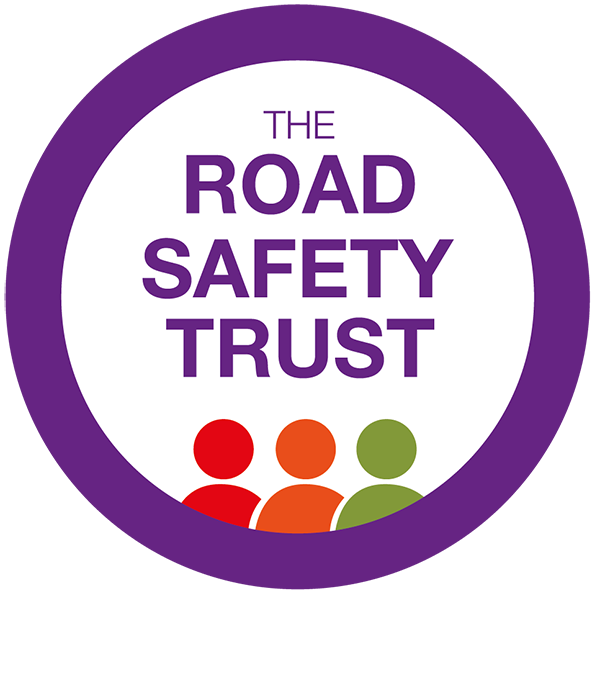Large projects
Here’s a portfolio giving details of the projects who have received funding from us in our large grants programme.
Search by category
Keyword search
University of East Anglia
INDICATE (Introduction of an oNline cognitive battery for fitness to Drive In mild Cognitive impAirmenT and dEmentia)
This project, carried out in partnership with Driving Mobility, aims to develop a feasible and reliable online battery of cognitive tests for people with MCI/dementia to determine their fitness to drive and incident/collision risks.
Lincolnshire Police
Disqualified driver innovation: improving road safety through electronic monitoring technology
The project aimed to develop effective technology that could, in due course, deter persistent disqualified drivers from reoffending using new electronic monitoring technology.
Keele University and Lincolnshire Police
How can digital evidence submissions from the public be used more effectively to reduce road offending and improve road safety?
Lincolnshire Police and Keele University received funding to explore how ‘dash cam’ and ‘head cam’ technology can be used to reduce road offending and improve road safety.
University College London (UCL)
Evaluating the role of telematics in reducing speed violations among drivers and riders in the delivery sector
The project explored the role of telematics in reducing speed violations amongst drivers and riders in the delivery sector and how this technology can be used as a risk management tool.
University of Sheffield
Promoting Intelligent Speed Assistance to reduce UK road traffic crashes
The University of Sheffield, in partnership with the University of Greenwich, received funding to promote Intelligent Speed Assistance as a technological solution that can reduce speed-related road traffic collisions.
Gloucestershire Police
Automatic Number Plate Recognition (ANPR) Capability
Gloucestershire Constabulary received funding from The Road Safety Trust to conduct research to understand and overcome limitations of current Automatic Number Plate Recognition (ANPR) technology.
The Floow Ltd
F2DR: Fit2Drive: Piloting new technology and processes to optimise fitness to drive assessments and improve safety
The Floow, a world leader in vehicle telemetry data capture and processing, has received funding to advance approaches for assessing older drivers’ fitness to drive.
Road Safety Foundation
Maximising the accessibility and impact of telematics speed data for enforcement, road safety engineering and research
Road Safety Foundation, working in partnership with tech company The Floow, made detailed telematics speed data available to stakeholders such as community speed watch, parish councils, road authorities, police, and researchers in the West Midlands.
Transport Scotland
Motorcycle safety in Scotland using applied psychology to influence rider behaviour
The funding is to support the evaluation of a pilot project that hopes to improve motorcycle safety with new road markings. The road markings, which will help motorcyclists to negotiate challenging bends, will be trialled in Scotland.
Liverpool City Council
A nudge in the right direction - using insights from behavioural science to improve pedestrian crossing design
This innovative project intended to reduce the number of pedestrians who are killed and injured on the roads every year and complements the council’s road safety strategy that was launched in March 2020.
PACTS (Parliamentary Advisory Council for Transport Safety)
Lower urban speed limits in Europe - what does the evidence show?
Lower urban speed limits are key to delivering zero road deaths and encouraging more walking and cycling.
Road Safety Foundation
Enhancing International Road Assessment Programme (iRAP) investment plans for vulnerable road users
This project provides local authorities with a specialist resource to help understand the risks to vulnerable road users in towns and cities.
University of the West of England
Design development of side road crossings
The aim of the UWE project was to provide a basis for better side road designs, so that risk for road users is reduced.
Nottingham Trent University
A comparison of Virtual Reality and non-Virtual Reality approaches to hazard perception training and testing: Does a 360 environment provide tangible benefits?
The project developed hazard tests and training materials presented in VR headsets and on single screens.
University of Kent
Using cognitive responses to assess and improve vehicle brake light designs
The aim of the project was to evaluate the effectiveness of existing vehicle brake light designs and identify factors that promote faster perception of the braking event such as size, shape, orientation, brightness and modulation.
University of Southampton
CRoss-modal Intervention Training To Improve Cyclist Awareness Levels (CRITICAL) project
Funding helped deliver two cross-modal training programs: 1) Cycle awareness for car drivers and 2) car awareness for cyclists.
University of Westminster
Reducing cycling injuries while cycling grows: a study of key route environment factors associated with reduced or elevated injury risk in the UK
This research project aimed to give a clearer picture of cycling safety by looking at risk per kilometre travelled rather than just injury numbers.
Bannerman Road Community School PTA
Albion Green/All Hallows Road design commission and public events programme
The proposal was to create and design a new use for an area of public space, created when a section of Albion Green/All Hallows Road in Easton closed, as an approach to promoting road safety.
Are you using our research or resources?
If you use any of the research or resources from projects we have funded, we would welcome you letting us know.





















